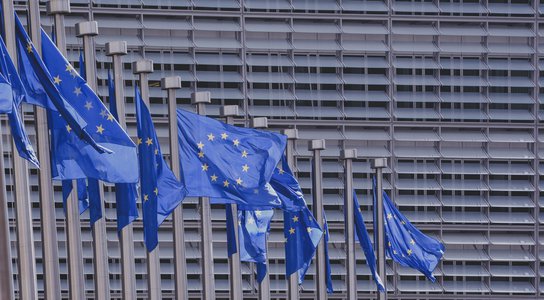EU states must speed up money laundering reforms
20th March 2020, London – EU countries must speed up progress in cracking down on anonymous companies, whilst the EU must act on those failing to do so, according to new analysis today by Global Witness
In line with
the EU’s Fifth Anti-Money Laundering Directive all Member States had until 10th
January 2020 to introduce public registers that reveal the true owners of all
companies based in those states. Global Witness has found progress has been at
best patchy with only five having fully and properly done so.
Whilst a number of states have at least begun to make progress, a significant number have placed restrictions on open public access to their registers meaning they cannot be classified as most effective in fighting money laundering and corruption.
Tina Mlinaric, Campaigner at Global Witness, said:
“Transparency over company ownership is a key tool in fighting corruption, in an age where the corrupt have exploited global financial secrecy to move around large sums of stolen wealth. It’s disappointing that despite having two years to get this right many of those in the EU are still dragging their feet.”
The EU’s Fifth Anti-Money Laundering Directive came about in response to the global Panama Papers scandal in 2016, prompting action to crack down on anonymous companies, including by facilitating access to the information on the real owners behind companies to all members of the public. Significant deficiencies in the efforts by EU Member States to properly do so include:
- Limiting access to the register by using an electronic identification system that is not widely available within the EU, let alone globally (Belgium, Croatia, Greece, Portugal, Sweden)
- Informing beneficial owners when their company has been searched, tipping them off to investigatory work (Greece, Portugal)
- Placing obstructions to using the register such as not being able to search for a company unless you know its tax identification number (Poland, Portugal)
- Requiring users of the register to pay to access this information, thus undermining claims of openness (Austria, Belgium, Estonia, Finland, Germany, Ireland, Sweden; Greece and Italy suggest they will introduce a paywall once their registers are set up; Malta enables access for a fee, but only to people who agree to use the information for the purpose of carrying out customer due diligence).
Global Witness is calling on all Member States to reassess their beneficial ownership register to ensure they are in line with the spirit of openness, as well as their obligations as part of EU membership.
Tina Mlinaric, said:
“It’s absolutely correct that tackling COVID-19 is the EU’s current priority but there’s no reason why some countries have been able to bring company ownership out of the shadows, whilst others haven’t.”
“At the appropriate moment its vital that the EU addresses its members who have yet to publicly reveal company ownership. This means being prepared to sanction those that have not met its deadline and enforcing the rules that it has gone to great pains to set.”
/ ENDS
Contacts
Notes to editor:
- - The new analysis and accompanying table of results can be downloaded from https://www.globalwitness.org/en/campaigns/corruption-and-money-laundering/anonymous-company-owners/5amld-patchy-progress/
- - Global Witness found out how well Member States are doing in setting up public registries of beneficial ownership by writing to all EU Member States and analysing publicly available information. Six countries – Croatia, Cyprus, Greece, Netherlands, Portugal and Spain – failed to respond.
- - At the beginning of February, the European Commission wrote to eight Member States, that had failed to notify it of any implementation measures for the 5th AML Directive (Cyprus, Hungary, the Netherlands, Portugal, Romania, Slovakia, Slovenia, Spain).
You might also like
-
Article Patchy progress in setting up beneficial ownership registers in the EU
EU Member States were given more than two years to implement beneficial ownership registers, but progress has been at best patchy with only five having fully and properly done so
-
Extended Report The Companies We Keep
What the UK's open data register actually tells us about company ownership
-
Press release Real action needed from the EU to avoid another Danske scale scandal
Global Witness comments on EU Finance Ministers meeting